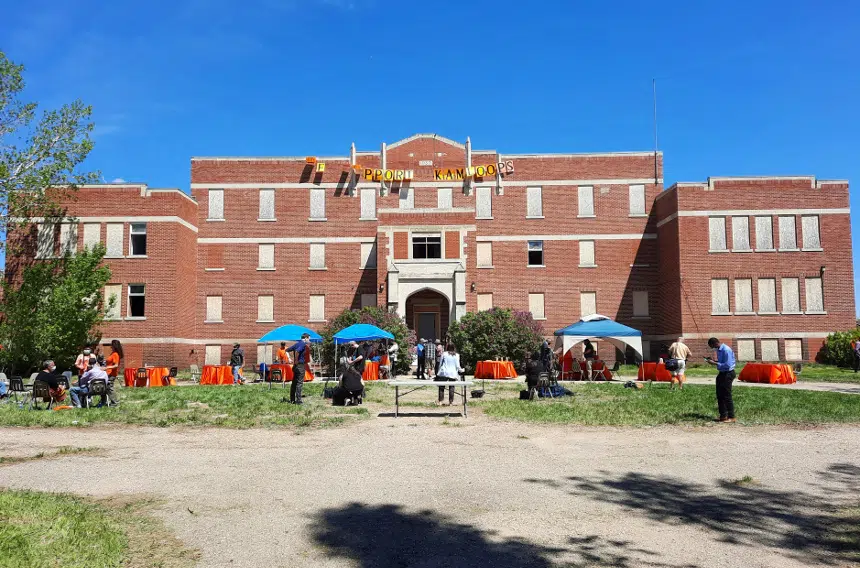The Government of Canada is giving the Federation of Sovereign Indigenous Nations (FSIN) nearly $5 million to find and commemorate unmarked graves at former Indian Residential Schools in Saskatchewan.
The $4.88 million in funding for the project comes from the $27.1 million set aside for Calls to Action 74 to 76 from the Truth and Reconciliation Commission Reports.
The announcement Tuesday was made at the former Muskowekwan Indian Residential School on the Muskowekwan First Nation. The building near Lestock is the last residential school building still standing in Saskatchewan.
The funding is to help with what the FSIN called “research, knowledge gathering and initial ceremonies related to the burial sites of children who never returned from residential schools to their Indigenous communities. The funding will also help communities gather the information necessary to guide appropriate ground-penetrating radar work.”
The provincial government recently announced it was providing $2 million in funding to help with the search for unmarked graves at the former sites of residential schools.
“There are hundreds of survivors and descendants that have provided testimony of classmates that did not return home from residential schools and sanitariums across the province,” FSIN Chief Bobby Cameron said in a media release.
“(Ground-penetrating radar) teams are being dispatched to several sites across the province in the hopes of locating these children to bring closure to the survivors, their descendants, and their communities.”
Ceremonies already have been held at some of the sites in Saskatchewan where investigations will be taking place, including on the grounds of former residential schools at Muskowekwan, Onion Lake, St. Anthony’s, Beauval, Guy Hill, Lebret and Sturgeon Landing.
Thirty-five unmarked graves were found on the grounds of the former Muskowekwan school in 2018.
The discovery of the remains of 215 children at the site of a former residential school in Kamloops has spurred governments into action.
“Saskatchewan First Nations know best what they need and Canada will be there with the FSIN to support them in ways that are First Nation-led, community-based, survivor-centric and culturally sensitive,” Carolyn Bennett, the federal minister of Crown-Indigenous Relations, said in the release.
“We are here to support survivors, families and communities with essential healing supports for those once again reliving the horrific tragedies of their experiences at residential schools. We will be there for all communities.”
The FSIN said conversations have been held over the past few weeks with residential schools survivors, their descendants and others to gather information and to provide emotional support.
Cameron said the federal government’s investment also will assist in that effort.
“It is a positive step towards healing and reconciliation for government to finally give these families and communities the closure they deserve and peace to the thousands of little souls in the unmarked graves surrounding these schools,” he said.







